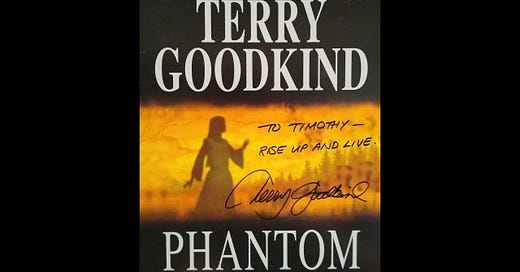How Terry Goodkind’s Sword of Truth Saved My Life
So miserable was my pre-Goodkind, pre-Rand life, that had I not discovered their works, I might be dead today.
Keep reading with a 7-day free trial
Subscribe to The Objective Standard to keep reading this post and get 7 days of free access to the full post archives.




